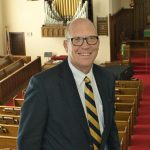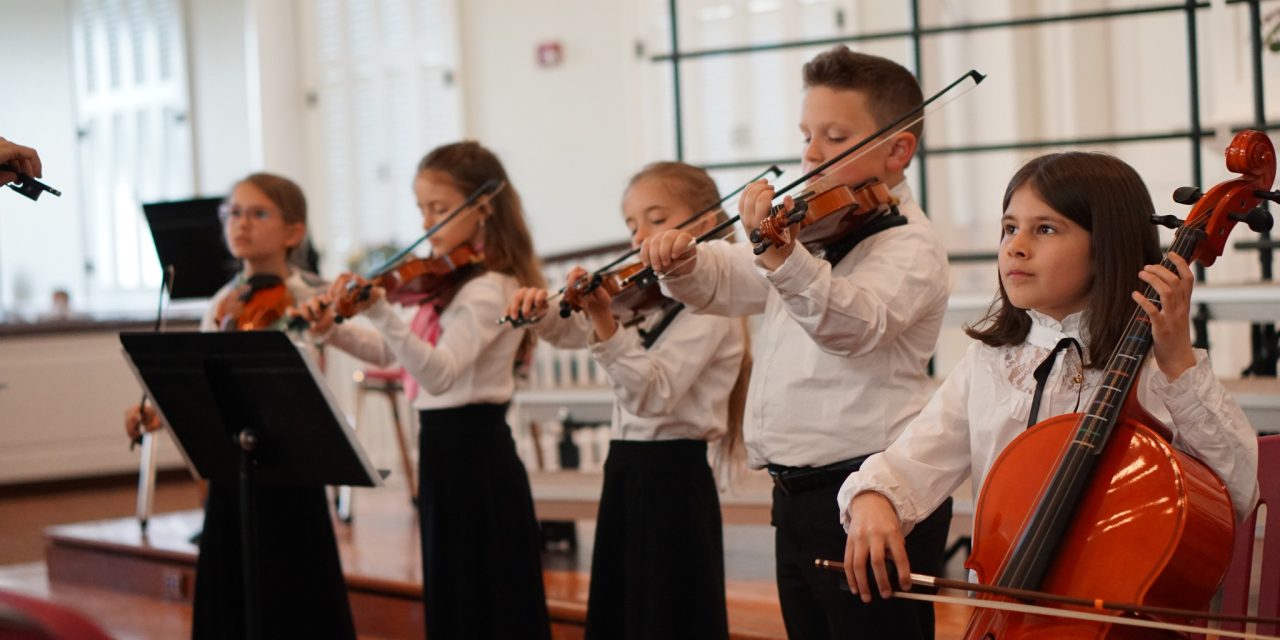BY DAN SNYDER
THE BIGGER PICTURE
Sitting in a Kansas public high school science classroom during a state music competition, we were listening to a rapturous piece by Stravinsky on a solo cello when I was impressed by a sign on the wall. It read, “Science, Technology, Engineering and Math: These are the skills that pay the bills.” I thought about the challenges a teacher faces, trying to interest kids in what they are forced to do in a classroom and get them to take responsibility for their own education. Raising the specter of poverty, the sign seemed like a call to materialism and an invitation to the “rat race.” The Stravinsky piece played on, never trite, always intelligent, and rooted in the past of classical composition, rhetorically inventive and full of communication and proportion. The young lady clearly understood the center of gravity of the piece, and had her audience in rapt attention.
Many parents and modern educators fear that a classical education is not practical. They communicate this anxiety to their children, who constantly pester their teachers with rhetorical questions like, “When will I ever use this?” This question reduces every field of science and art to a technological concern, and according to C.S. Lewis, it turns every modern-minded scientist into a magician — someone who hopes to master nature by his art. Reasonable people used to understand that the freedom to study and practice the arts—by way of instruction in the “science” behind them—was a pleasure and a fascination. They understood that work will follow the busy and comprehensive mind, and that slavish devotion to money-making tricks was just that, slavish. The ancient Greeks of Athens would not even allow craftsmen and merchants to vote, considering them too bound up in the necessities of technology to be of much use in deliberation. If today’s critics (and the ancient Greeks) are correct, and the public schools abandoned true education in favor of work training, it would explain much about the state of our country today.
While all of the mathematical sciences (including math, geometry, physics, and music) are essential to a student’s formation, in the classical tradition the capstone of these sciences is music — its theory, its practice, and its harmonizing effect on the human being. It is from classicism that we inherit the idea of the music of the spheres, of the harmony of the cosmos, even of the inaudible melody that occurs when we experience the creation around us cooperating by what moderns call “laws” in order to sustain life. It is no wonder that classical Christian schools tend to focus much more on music for all students than other types of schools.
Happily, submission to the demands of the curse of Adam, tilling the ground by the sweat of our brow, can be a blessing, and we in the post-Reformation view do not consider labor beneath us. However, peasantry can come about in many forms, and one is a Philistine-like devotion to security through limited and specialized skill mastery, to the exclusion of depth. This happens when we think of the creation merely as something to wrest a living from. This is why, for example, music is seen as something extra in modern education, usually an elective, and not part of a core education. But in classical education, both the arts and the mathematical sciences are considered essential to good formation of the student. God speaks to us through his order and solicitous care for his creatures, letting us experience His goodness through these encounters with truth, so that we may grow into a consciousness of the beauty of fellowship with our creator. Thinking of the sign in that Kansas classroom, the “sciences” should never be a grim duty for the future survival of our students, but rather should provide students with a deepening awareness of life itself and the opportunity to stand in awe before their creator. Also, the bills will be paid. ✤
 DAN SNYDER is the headmaster of Concordia Academy, a classical Lutheran high school in Wichita, KS. He is a Marine, a former professional opera singer, and has worked as a rhetoric teacher in Classical Christian Education since 2014.
DAN SNYDER is the headmaster of Concordia Academy, a classical Lutheran high school in Wichita, KS. He is a Marine, a former professional opera singer, and has worked as a rhetoric teacher in Classical Christian Education since 2014.










